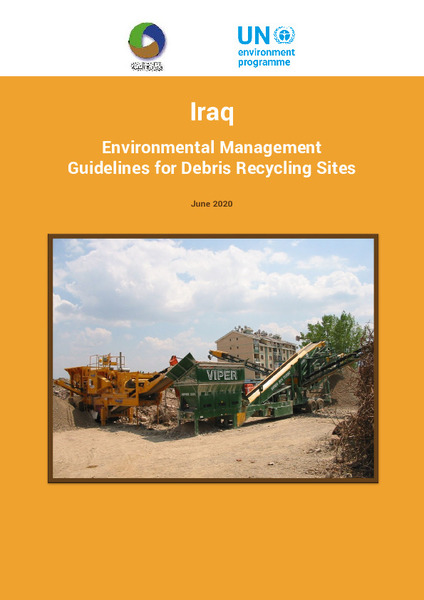| dc.contributor | Economy Division | en_US |
| dc.contributor.author | United Nations Environment Programme | en_US |
| dc.contributor.author | Iraq, Ministry of Health and Environment | en_US |
| dc.coverage.spatial | Iraq | en_US |
| dc.date.accessioned | 2023-02-16T09:34:24Z | |
| dc.date.available | 2023-02-16T09:34:24Z | |
| dc.date.issued | 2020-06 | |
| dc.identifier.uri | https://wedocs.unep.org/20.500.11822/41850 | |
| dc.description | Debris recycling is a key phase of the rehabilitation and reconstruction works in conflict-affected areas in Iraq, with significant environmental benefits including:
1. Debris recycling leads to reduced quantities requiring disposal;
2. Savings in energy and emissions from reduced transport of waste debris for disposal and subsequent reduced transport of quarry materials into cities for reconstruction; and
3. Reducing the need to quarry natural raw materials for the reconstruction works since recycled debris can substitute these raw materials.
This document has been developed for the purpose of supporting environmental and safety management at debris recycling sites in Iraq. | en_US |
| dc.format | pdf | en_US |
| dc.language | English | en_US |
| dc.rights | Public | en_US |
| dc.subject | debris | en_US |
| dc.subject | environmental management | en_US |
| dc.subject | Iraq | en_US |
| dc.title | Iraq: Environmental Management Guidelines for Debris Recycling Sites | en_US |
| wd.identifier.sdg | SDG 3 - Good Health and Well-being | en_US |


